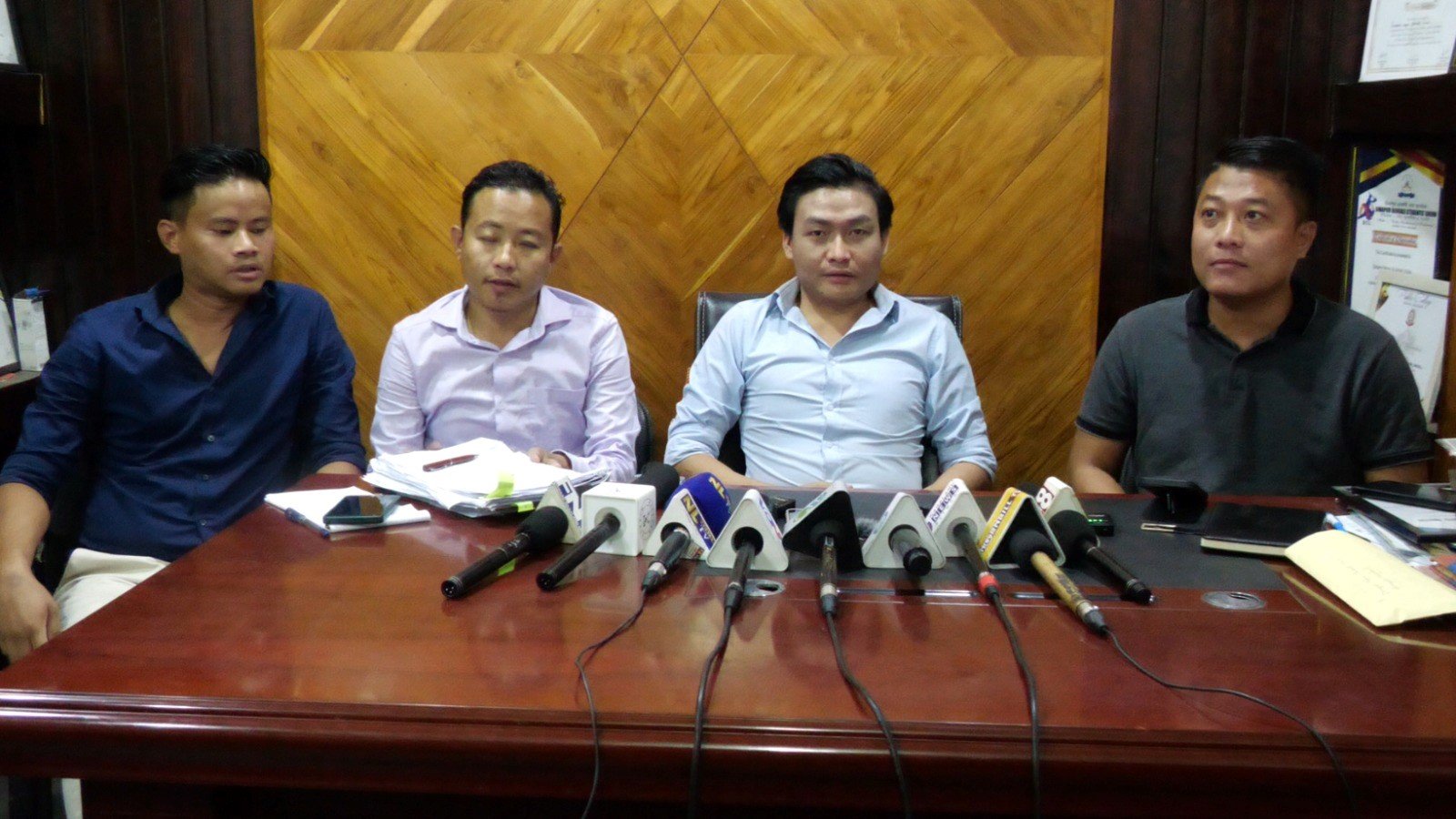The Dimapur Naga Students’ Union (DNSU) held a press conference on April 15 at its office near the Central fire brigade, Dimapur, to address concerns over the absorption of contractual assistant professors by the department of higher education.
Speaking to the media, DNSU President Hinoto Aomi informed that the union received a list of 144 names through the RTI, while a subsequent transfer and posting order issued by the department on April 8 included 147 individuals. He clarified that the additional three names were part of regular transfers. Aomi also acknowledged that DNSU was not the first to raise the issue but took the step of filing an RTI to present verified facts.
“While emergency appointments might be justified in rare situations, they should not be used to justify mass recruitment without competitive exams,” stated the President. Although legal action was an option, Aomi admitted the government had completed procedural formalities including cabinet, NPSC, and Governor clearances, making a court case difficult to win.
Aomi stressed that any cabinet decision not reflective of public interest should be reconsidered and called for broader discussions involving intellectuals and leaders. He also confirmed that the Naga Students’ Federation (NSF) had raised the matter during its Fifth Federal Assembly and that DNSU would follow NSF’s lead.
Addressing the support shown by some student councils for the absorbed professors, Aomi clarified that DNSU did not intend to undermine any student bodies. He encouraged the media to interview the concerned colleges to better understand their positions and expressed concern over the motivations behind such support.
Rukewezo Wetsah, DNSU, Assistant General Secretary revealed that the Union had received an RTI response on March 28, 2025, confirming that 144 contractual posts were absorbed on December 18, 2024. He stated that these appointments had originally been made between January 30, 2015, and February 18, 2020.
Wetsah pointed out that the regularization of these posts violated a cabinet decision dated June 6, 2016, which banned such practices. He added that a policy approved by the Nagaland Cabinet on February 8, 2024, allowing regularization, undermined the principle of equal opportunity, as the appointments were not routed through the Nagaland Public Service Commission (NPSC).
Download Nagaland Tribune app on Google Play

Calling attention to the systemic loopholes in several departments, Michael Kath, General Secretary affirmed the DNSU’s stance based on the values of justice, fairness, and transparency. While acknowledging the contribution of the absorbed staff, he maintained that appointments must follow due recruitment processes.
Kevin Gonmei, Education Secretary remarked that the matter affected not only DNSU but also the general public. He called for collective efforts against corruption, which he said extended beyond government sectors.
The DNSU mentioned that it met with Minister for Higher Education & Tourism, Temjen Imna Along, regarding the issue. Aomi described the meeting as a constructive dialogue and acknowledged that the minister alone was not responsible for the decision, though he carried the burden of it.
Emphasizing that no justification could override the need for a fair recruitment process, DNSU proposed age relaxation for those who became overage while in service. The union also highlighted government notifications that clearly stated the contractual nature of these positions, which were subject to termination or NPSC recruitment.
Calling the years-long delay in resolving the matter a sign of government negligence, DNSU reiterated its commitment to the larger issue of transparent recruitment. While ANCSU had shown interest in handling the matter, DNSU said its focus would remain on safeguarding the integrity of the NPSC process.
DNSU further appealed to the citizens of Nagaland to strive for systemic change, warning that clinging to outdated systems was destroying countless dreams and urged individuals and institutions alike to take responsibility and push for proper recruitment procedures to restore faith in public institutions.

